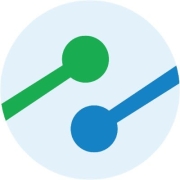Data Warehouse solutions enable organizations to store, analyze, and manage large volumes of data efficiently. This technology supports business intelligence activities by consolidating data from different sources into a centralized repository.
Data Warehouse solutions are essential for data-driven decision-making. Organizations can aggregate information from numerous sources, providing a single point of truth. This facilitates critical analytical operations and enhances strategic planning by offering deeper insights into complex data sets.
What are the critical features of a Data Warehouse solution?In industries like retail and finance, Data Warehouse solutions streamline customer data analysis, enabling companies to tailor marketing strategies and optimize inventory management. Healthcare organizations use these solutions to analyze patient data, improving treatment outcomes and operational efficiency.
Centralizing and managing data in an organized way is crucial for driving innovation and maintaining a competitive edge in the marketplace. Data Warehouse solutions help organizations systematically harness their data assets, enabling them to adapt to changing market conditions and customer demands.












































A data warehouse serves as a central repository for information that flows into it from various databases. The data is then processed, standardized, and merged so that it can be accessed by users in spreadsheets, SQL clients, and business intelligence tools. Once all of the data is compiled in one place, organization executives can analyze it and mine the data for patterns that will assist in making business decisions.
Data warehouses and databases are both used for storing data. A database is used to store a large amount of real-time information, such as which items are in stock or have been sold. It processes your company’s daily transactions via simple queries. A data warehouse (DW or DWH) compiles historical (not current) data from multiple sources within your organization, handling complex queries which are used to create and analyze reports and then extract insights and make business decisions.
Databases and data warehouses process data differently. Databases use OLTP (online transactional processing) to quickly update a large amount of simple online transactions. OLTP responds immediately and therefore is useful in processing real-time data. Data warehouses, on the other hand, use OLAP (online analytical processing) to analyze large amounts of data and find out trends from them, such as how much is sold each day.
A Data Warehouse consolidates data from multiple sources, providing a unified view of information essential for business intelligence. By storing current and historical data, it allows you to perform in-depth analysis and generate actionable insights. This leads to more informed decision-making, helping you identify trends, forecast future performance, and streamline operations.
What Are the Key Features to Look for in a Data Warehouse Solution?When selecting a Data Warehouse solution, prioritize scalability, integration capabilities, and high performance. Look for solutions that offer robust data management, advanced analytics, real-time data processing, and strong security measures. A user-friendly interface and comprehensive support services are also crucial to ensure seamless implementation and maintenance.
How Does Data Warehouse Automation Benefit Your Organization?Automating your Data Warehouse can significantly increase efficiency and accuracy in data processing. It reduces manual intervention, minimizes errors, and speeds up data integration and transformation. This frees up your IT team to focus on strategic initiatives and improves the overall agility of your data strategy, allowing you to respond quickly to business needs.
What is the Difference Between a Data Warehouse and a Data Lake?While both Data Warehouses and Data Lakes store data, they serve different purposes. A Data Warehouse is structured for specific queries and is optimized for analysis, using cleaned and organized datasets. A Data Lake, however, stores raw, unprocessed data in its native format, which is more suitable for exploratory analytics. Choosing between them depends on your specific use-case requirements and the nature of your data.
How Do Cloud-Based Data Warehouses Compare to On-Premises Solutions?Cloud-based Data Warehouses offer advantages such as scalability, cost-effectiveness, and minimal infrastructure maintenance compared to on-premises solutions. They allow you to scale resources on demand and pay only for what you use. However, on-premises solutions can provide more control and security for organizations with strict data compliance requirements. Your choice should align with your organization's technical capabilities and strategic goals.